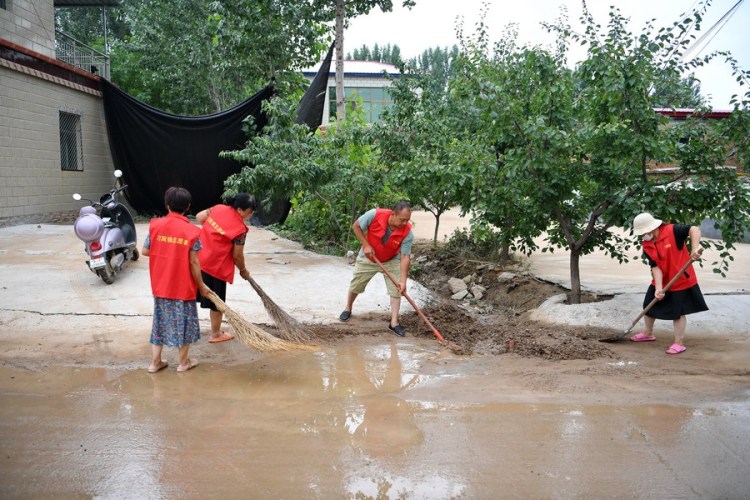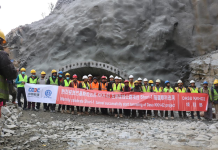Zhuozhou: The city of Zhuozhou, one of the areas in Hebei province hit hardest by unprecedentedly heavy rainfall and flooding triggered by Typhoon Doksuri, has shifted its focus from first response to extensive disinfection and post-disaster cleanup.
Over the weekend, videos and pictures circulated on social media showing many dead animals and lots of scattered trash on the streets of urban as well as rural Zhuozhou. This showed an urgent need for disinfection as the floodwaters gradually recede in various parts of the city.
The city’s center for disease control and prevention said on Saturday that it had dispatched 15 teams to local towns and temporary shelters to guide disinfection and infectious disease prevention and control efforts. These teams provided detailed explanations to front-line staff on the proportions and use of disinfectants, it said.
On Saturday, an employee at the city’s disease control and prevention center was quoted by Hubei province-based Jiupai News as saying that large-scale disinfection would be carried out in urban areas, and residents had been advised to minimize outdoor activities.
Wang Dong, Party chief of Baita village in Zhuozhou, told China Daily on Sunday that more than 140 villagers had voluntarily taken to the streets over the weekend to remove mud and debris and disinfect the area.
He said that more than 30 additional members of a rescue team from Qingdao, Shandong province, arrived in the village on Sunday to help with disinfection, as they had shifted their focus from rescue work to disinfection and epidemic prevention since Saturday. More than 200 households out of the total 680 households in Baita have been heavily affected by flooding, with their houses and crops severely damaged, according to Wang.
To assist in the restoration of transportation, some 70 members of the People’s Armed Police Force were mobilized on Saturday to clean up mud and trash along National Highway 107, People’s Daily reported, adding that the cleanup work was challenging because of the deep mud and complicated mixture of debris.
According to the Health Commission of Hebei province, 547 medical teams had been dispatched by Friday to provide door-to-door health services to people in urban and rural areas of the province, ensuring timely treatment for the injured and sick, and effectively preventing infectious diseases.
The commission also said that local health authorities were making every effort to thoroughly clean up garbage, sludge, sewage and other wastes in residential and surrounding areas. Emergency health monitoring has been launched to target intestinal, respiratory and food-borne diseases to which disaster-affected areas are vulnerable, the commission said, adding that it has strengthened efforts to assess the risk of diseases such as cholera, typhoid and dysentery. –The Daily Mail-China Daily news exchange item






